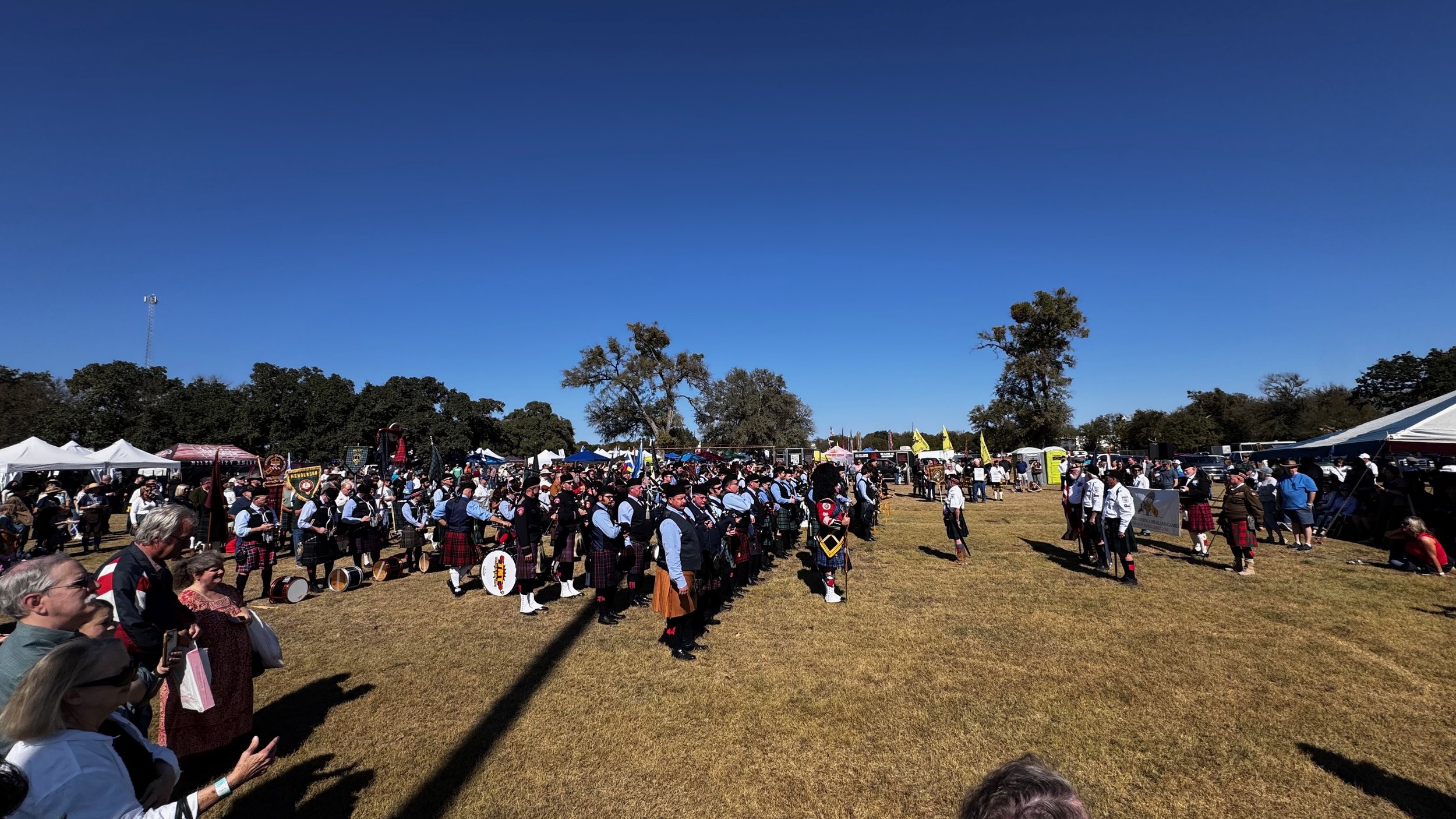
Texas Bagpipe Stories:
Exploring Identity Through the Music of Bagpipes in Texas
A Research Project in the University of Sheffield Department of Music

What does piping mean to you?
New Pipers
Maybe you’ve recently started playing the pipes, or you’ve got the itch to do so. If so, I want to hear from you!
Longtime Pipers
A longtime piper (like me)? I want to hear your story. How did you get involved in piping? What kinds of music influenced you? Who are your piping idols? What are your piping goals? What does piping mean to you? What kind of other piping-relate activities are you involved in? How do you see you future regarding bagpipes?
Piping Enthusiasts
Don’t play the pipes? No problem! Got a spouse or significant other that plays the pipes? Like to go to highland games, dances, or ceidhldhs? Just like to hang out at Scottish-themed bars, or maybe hand Scottish memorabilia around your home? We get it.
What’s the relationship between piping, identity, and community?
The subject of identity and community has been a topic of researchers for many years.
You’d think that with all the talk about identity, someone would have researched how the niche of bagpiping formed a microcosm for research, but that’s not the case.
Here in Texas, we not only have a unique culture, but we have a significant contribution both historically and culturally from Scottish immigrants and their descendants throughout the state.
Exploring piping in Texas provides an excellent opportunity to explore what piping does, not only for those who participate in it, but for those who love and embrace piping and piping culture.
This research is a contribution not only to Ethnomusicology in general, but to examine in greater detail the diversity and role of music and culture in the incredibly diverse state of Texas, undertaken by one of the major ethnomusicology programs in the world.

What is Identity?
How does musical participation contribute to one’s identity?
What does it mean to belong?
What is the University of Sheffield?
The University of Sheffield, established in 1905, traces its origins to the Sheffield Medical School (1828), Firth College (1879), and the Sheffield Technical School (1884). These institutions merged to form the University College of Sheffield in 1897, which later gained university status as the University of Sheffield. Located in South Yorkshire, England, the university quickly grew in reputation, becoming known for its research excellence and strong industrial connections, particularly in metallurgy and engineering. Today, Sheffield is a member of the prestigious Russell Group of leading UK research universities, known for its commitment to cutting-edge research and teaching across a wide range of disciplines.
Ethical Research
At the heart of fieldwork and research at the University of Sheffield lies a commitment to conduct fieldwork and publish study results in a way that preserves the dignity, freedom, and privacy of whose who would like to participate.
The University Ethics Committee approves (in advance) the fieldwork methodology, compilation of data, and its publication. We make every effort to carry out all aspects of our fieldwork with respect, privacy, and dignity for all persons, regardless of their ethnic origin, national identity, or gender identity.











